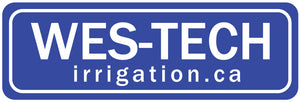Are you a creative individual who wants to use your landscape lighting in the best possible way? The great thing about landscape lighting is its versatility. With the right fixtures, you can create amazing effects that will make your home stand out from the crowd. This article will explore the most common lighting effects and the required fixtures to properly implement them.
Lighting Effects: Uplighting - Directional and 360 degree
Fixtures Used: Spot Lights, Accent Lights, Flood Lights and Well Lights
With uplighting, the object is lit in one direction only and the lighting fixture is usually placed below what you are attempting to illuminate. This is a common way to highlight elements in your landscape like flags or flowering trees. Another method for highlighting your yard features is positioning the light below the object to create an effect that can be seen from multiple viewpoints.




Moon Lighting
Fixtures Used: Spot Lights, Accent lights, Flood Lights and Well Lights
This effect creates ambience within an area to mimic moonlight. It can be done by placing light fixtures within branches of a mature tree to cast unique shadows over your landscape. When applied correctly, the effect is stunning and lifelike.

Silhouette Lighting
Fixtures Used: Well Lights, Spot Lights, Accent Lights and Wall Wash Lights
Creating effective silhouette lighting involves aiming a light at a statue or plant to cast an attention-grabbing shadow against a wall or facade. It's important to place the light fixture in front of the object to emphasize the shadow when you walk by. The further the light fixture is from your object, the less intense, or the less contrast will be reflected against the wall, so keep the lights up close.

Spot Lighting
Fixtures Used: Flood Lights, Spot Lights or Accent Lights
Spot lighting is a basic lighting method and involves aiming a bright, focused light at a statue or plant. It's very similar to the silhouette lighting effect. The only difference is that the light fixture is usually positioned above the object rather than below in order to cast a shadow.

Spread Lighting
Fixtures Used: Spread Lights
Spread lights are used to provide lighting for low lying plants and ground cover. Consider using spread lights for showing off shallow shrubs, flower beds or rock gardens.

Path Lighting
Fixtures Used: Mushroom Lights, Tulip Lights, Lanterns, Tier Lights
Path lighting is the ultimate way to provide a safe, secure and visible walkway at night time. Path lights are very similar to spread lights and must be correctly placed to prevent glare. Path lighting is one of the easier ways to create some warm ambiance to your garden or front of yard.

Step and Deck Lighting
Fixtures Used: Spot Lights, Accent Lights, Hardscape Lighting
Deck lighting could be implemented in many unique ways. Fixtures can be placed as surface lights between vertical posts and railings or even flush mounted in the wood panelling. Step lighting can be recessed in the risers of steps to illuminate the treads and provide safety for stairways.

Wall Lighting
Fixtures Used: Well Lights, Spot/Accent Lights, Wall Wash Lights
This technique enhances structural elements of your home or landscape. Features of your home and garden that might not be noticed during the day can play a dramatic role in your landscape at night. Chimneys, fencing, retaining walls and structure walls are all candidates for wall lighting.

We hope that this post has given you an idea on how to properly setup landscape lighting effects for your home.
For recommendations and ideas for landscape lighting, please feel free to contact us at anytime.

